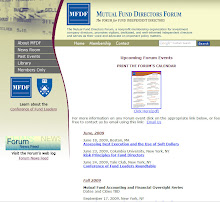[T]here are a number of gaps across our system, both in terms of similar products and services that are being regulated quite differently. Where we can identify these regulatory gaps that compromise investor protection and pose risk to the financial system—from sensible and balanced oversight of hedge funds to steps to decrease counterparty risk and increase transparency in OTC derivatives—now is the time to move forward.
Ketcham identified the regulatory gap most in need of being addressed is "the disparity between oversight regimes for broker-dealers and investment advisers." Ketcham stated that though the SEC and state regulators play a vital rolein overseeing both broker-dealers and investment advisers, "neither has the resources by themselves to engage in a regular and vigorous examination program and day-to-day oversight for the investment adviser community." Ketcham asserted that those determined to commit financial fraud have exploited the gaps in regulation to maintain their schemes:
Quite simply, as we learned from Madoff, it does not make sense for two, separate, independent regulatory bodies to oversee investment advisers and broker-dealers, especially when these businesses may exist in the same legal entity. This case, in particular, highlights what can happen when a regulator like FINRA is only allowed to see one side of the business. There is no doubt that Madoff and others have cynically designed their schemes to fit between the jurisdictional cracks to decrease the likelihood of detection. Those opportunities must be stopped now!Ketcham recognizes that there are some differences between services provided by investment advisers and broker-dealers, but he asserts that harmonizing the regulation of investment advisers and broker-dealers for enhanced regulatory consistency is in the best interest of investors.
One of the primary issues raised about investor protection differences between the two channels is the difference between the fiduciary standard for investment advisers and the rule requirements, including suitability, for broker-dealers. This is the kind of issue that should and will be on the table as we all look at how best to reform our regulatory system and strengthen investor protections. In keeping with our view that there should be increased consistency in investor protections across financial services, we believe it makes sense to look at the protections provided in various channels and choose the best of each. In simplest terms, let's explore seriously whether a properly designed fiduciary standard can effectively be applied to broker-dealer selling activities and, if there are problems raised, make a strong effort to resolve those problems. It is time we make an honest effort to break this logjam—two different standards is simply untenable in this world.Ketcham concluded his remarks by telling his audience that investors are "waiting to see if we're serious about redoubling our commitment to compliance. They're waiting to see if compliance can truly be flexible and adaptable to a shifting marketplace. They're waiting to see if we really will eliminate the dangerous gaps in the system that jeopardize their financial well-being."
The full text of Richard Ketchum's March 23, 2009 remarks is available at: http://www.finra.org/Newsroom/Speeches/Ketchum/P118256





